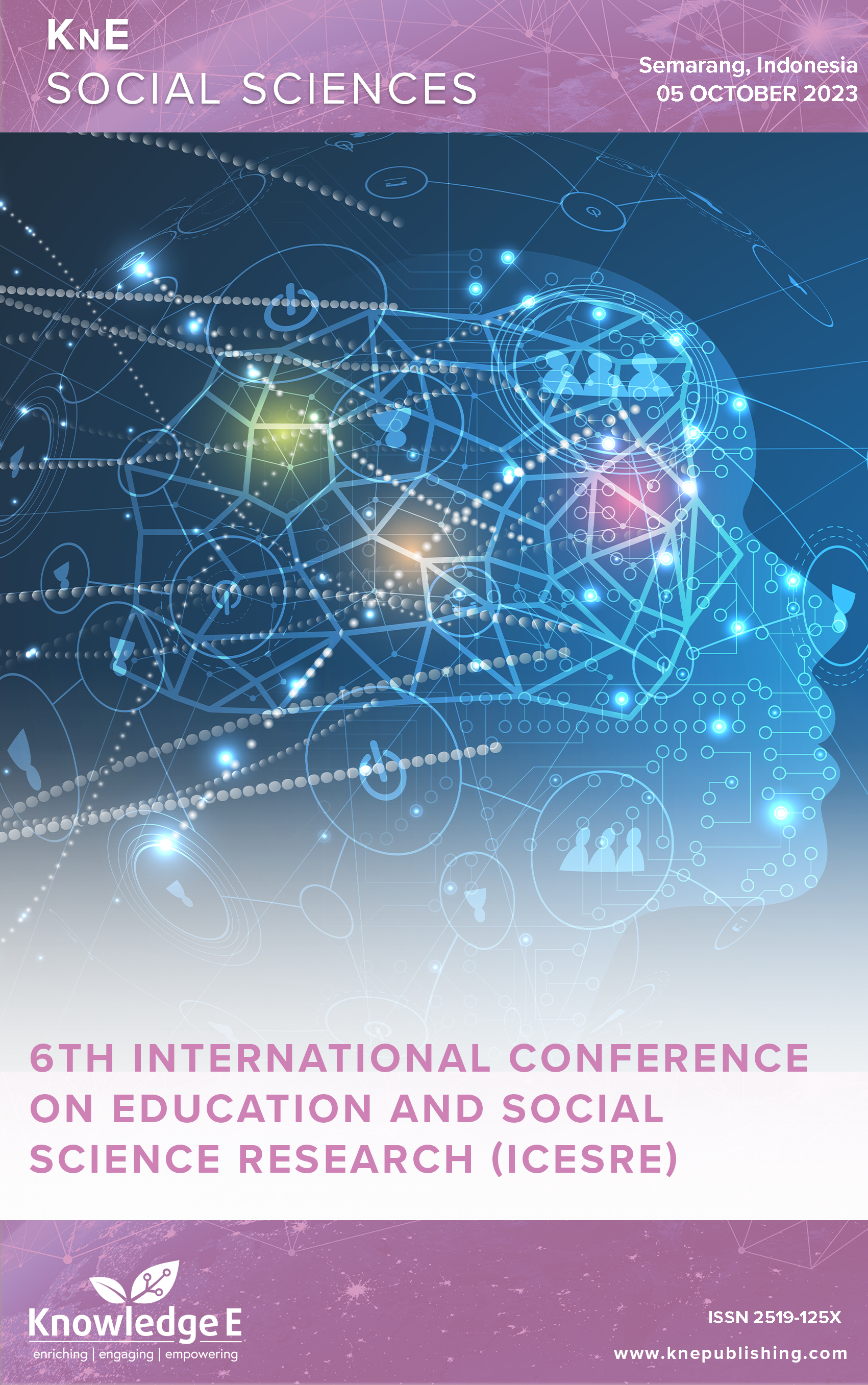Various Factors that Influence the Successful Implementation of School Digitalization Policies
DOI:
https://doi.org/10.18502/kss.v9i6.15270Abstract
School digitalization in Indonesia has been widely implemented in line with the 2020/2021 education transformation policy. Various factors are thought to support the success of digitizing the learning process, school management, and how people work in schools. This research aims to determine various factors that positively influence the successful implementation of school digitalization at Junior High Schools (SMP) and Madrasah Tsanawiyah (MTs). This research uses a quantitative cause-and-effect approach with a questionnaire distributed online. The research was conducted in semester 1 of 2023 with 1088 respondents. Data processing was done using non-parametric Mann-Whitney and Kruskal-Wallis statistics for normal distribution. The research results that consistently show a positive and significant influence are differences in regions and respondent positions. Factors not influencing school digitalization are gender and type of school. Inconsistently influential factors are the respondent’s age, type of school transformation intervention, and school status. Regional differences, which indicate differences in school digitalization policies by local education leaders, positively influence the success of school digitalization. Likewise, the stronger a person’s position in a school in pushing policy, the greater the influence on the quality of school digitalization. Thus, the two factors, namely a person’s position and regional differences, indicating differences in leadership, are recommended to be strengthened to increase the success of implementing school digitalization policies.
Keywords: educational transformation, digitalization of learning’ digitalization of management, digitalization of ways of working
References
Rastogi H. Digitalization of education in India–An analysis. International Journal of Research and Analytical Reviews. 2019;6(1):1273-82.
Jedeskog G, editor ICT in Swedish Schools 1984-2004: How computers work in the teachers-world. Seminar net; 2007. DOI: https://doi.org/10.7577/seminar.2511
Zierer K. Putting learning before technology!: The possibilities and limits of digitalization: Routledge; 2019. DOI: https://doi.org/10.4324/9780429453243
Zancajo A, Verger A, Bolea P. Digitalization and beyond: the effects of Covid-19 on post-pandemic educational policy and delivery in Europe. Policy and Society. 2022;41(1):111-28. DOI: https://doi.org/10.1093/polsoc/puab016
Griban O, Griban I, Korotun A, editors. Modern teacher under the conditions of digitalization of education. 1st International Scientific Conference” Modern Management Trends and the Digital Economy: from Regional Development to Global Economic Growth”(MTDE 2019); 2019: Atlantis Press. DOI: https://doi.org/10.2991/mtde-19.2019.121
Prensky MR. Teaching digital natives: Partnering for real learning: Corwin press; 2010.
Selegi SF. Iptek: Transformasi Pendidikan Menuju Digitalisasi Pendidikan. In: Suardi M, editor. Landasan Pendidikan2021. p. 61.
Jahnke I, Bergström P, Mårell-Olsson E, Häll L, Kumar S. Digital Didactical Designs as research framework: iPad integration in Nordic schools. Computers & Education. 2017;113:1-15. DOI: https://doi.org/10.1016/j.compedu.2017.05.006
Aesaert K, van Braak J, Van Nijlen D, Vanderlinde R. Primary school pupils’ ICT competences: Extensive model and scale development. Computers & Education. 2015;81:326-44. DOI: https://doi.org/10.1016/j.compedu.2014.10.021
Hauge TE. Uptake and use of technology: Bridging design for teaching and learning. Technology, Pedagogy and Education. 2014;23(3):311-23. DOI: https://doi.org/10.1080/1475939X.2014.942750
Lindqvist MJH. Gaining and sustaining TEL in a 1: 1 laptop initiative: Possibilities and challenges for teachers and students. Computers in the Schools. 2015;32(1):35-62. DOI: https://doi.org/10.1080/07380569.2015.1004274
Glover I, Hepplestone S, Parkin HJ, Rodger H, Irwin B. Pedagogy first: Realising technology enhanced learning by focusing on teaching practice. British Journal of Educational Technology. 2016;47(5):993-1002. DOI: https://doi.org/10.1111/bjet.12425
Frolova EV, Rogach OV, Ryabova TM. Digitalization of Education in Modern Scientific Discourse: New Trends and Risks Analysis. European journal of contemporary education. 2020;9(2):313-36. DOI: https://doi.org/10.13187/ejced.2020.2.313
Ranoptri D, Effendi R, Ariefin M, Ilfa I, Minarti M, Nursyamsi N. Digitalisasi sekolah dengan rumah belajar menyiapkan SDM era revolusi industri 4.0. Sekretariat Jenderal; 2019.
Sugiyono. Statistik Nonparametik Untuk Penelitian. Bandung: Alfabeta; 2018.
Adam A. Perempuan Dan Literasi Di Era Digitalisasi. AL-WARDAH: Jurnal Kajian Perempuan, Gender dan Agama. 2021;15(2):251-61.
Hanita M. Kepemimpinan Strategis Untuk Ketahanan Wilayah Di Era Digital (Studi di Kota Pariaman, Provinsi Sumatera Barat). Jurnal Ketahanan Nasional. 2023;29(2):199- 219. DOI: https://doi.org/10.22146/jkn.86067
Huang R, Spector JM, Yang J. Educational Technology: A primer for the 21st centuary: Springer; 2019. DOI: https://doi.org/10.1007/978-981-13-6643-7
Kemenag. Data Statistik E-Learning Madrasah Jakarta: Kementerian Agama; 2020 Available from: https://elearning.kemenag.go.id/web.
Alifia U, Barasa Ar, Bima L, Pramana Rp, Revina S, Tresnatri Fa. Learning From Home: A Portrait Of Teaching And Learning Inequalities In Times Of The Covid-19 Pandemic. Smeru Reseach Institute; 2020.
Verawardina U, Asnur L, Lubis AL, Hendriyani Y, Ramadhani D, Dewi IP, et al. Reviewing Online Learning Facing the Covid-19 Outbreak. Journal of Talent Development and Excellence. 2020;12(3s):385-92.
Azzahra NF. Mengkaji Hambatan Pembelajaran Jarak Jauh di Indonesia di Masa Pandemi Covid-19. 2020. DOI: https://doi.org/10.35497/309163
Asy’ari H, Syukur M. Strategi Kepemimpinan Transformasional Kepala Sekolah Dalam Digitalisasi Pendidikan (Studi Kasus Di Smp Al-Hasra Dan Smp Islam Parung): Jakarta: FITK UIN Syarif Hidayatullah Jakarta; 2023.
Miftah Z, Rozi F. Digitalisasi dan Disparitas Pendidikan di Sekolah Dasar. IBTIDA. 2022;3(02):149-63. DOI: https://doi.org/10.37850/ibtida.v3i02.361
Haris MA. Urgensi Digitalisasi Pendidikan Pesantren Di Era Society 5.0 (Peluang dan Tantangannya di Pondok Pesantren Al-Amin Indramayu). Islamic Management: Jurnal Manajemen Pendidikan Islam. 2023;6(01):49-64.
Nihayaty AI, Fanani DR. Digitalisasi Madrasah: Langkah Kalangan Muslim di Era Media Baru. Nusantara: Indonesian Journal of Islamic Studies. 2022;2(1):29-40. DOI: https://doi.org/10.54471/nusantara.v2i1.11
Rahmatiah HA, Asiyah N, editors. Kesenjangan Generasi Antara Guru & Murid Sebagai Tantangan Digitalisasi Pendidikan. Prosiding Seminar Nasional Program Pascasarjana Universitas Pgri Palembang; 2019.
Indra IM, Yuhanidah H, Putri AN, Arifatunissa M, Padli H, Khasanah U, et al. Merdeka Belajar Melalui Sekolah Penggerak. Penerbit Tahta Media 2021.
Rochaendi E, Wahyudi A, Perdana R. Kompetensi Teknologi, Pedagogi, dan Konten Guru SD Negeri dan Swasta di Kota Cimahi, Jawa Barat. JPDI ( Jurnal Pendidikan Dasar Indonesia). 2021;6(1):1. DOI: https://doi.org/10.26737/jpdi.v6i1.2222

